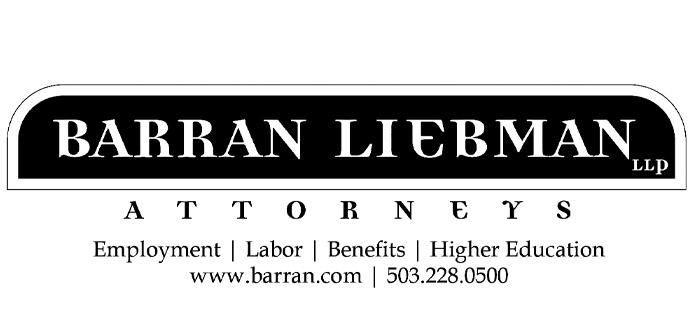The EEOC’s Updated Guidance for the Post-Pandemic Workplace
On May 11, 2023, the federal COVID-19 Public Health Emergency (PHE) concluded, officially marking the end of the years-long pandemic. However, while the PHE is over, employers are not free to return to business as usual. In recognition of this reality, the U.S. Equal Employment Opportunity Commission (EEOC) released an updated version of its COVID-19 technical assistance guide on May 15, 2023, titled What You Should Know About COVID-19 and the ADA, the Rehabilitation Act, and Other EEO Laws.
The revised guidance focuses on federal laws administered by the EEOC, including Title VII of the Civil Rights Act of 1964 (Title VII), the Americans with Disabilities Act (ADA), the Age Discrimination in Employment Act (ADEA), and the Genetic Information Nondiscrimination Act (GINA). For key highlights from the technical assistance, read more below.
Continuation of Reasonable Accommodations
The EEOC has made it clear that the end of the PHE does not allow employers to automatically stop providing reasonable accommodations that were initially granted for pandemic-related circumstances. Instead, employers should assess accommodations approved during the PHE in consultation with each employee and evaluate whether there is still a need for reasonable accommodation based on the employee’s individual circumstances. When an employee asks for an accommodation, the employer may request supporting medical documentation before granting the request, particularly when the need for accommodation is not obvious or already known.
Reasonable accommodations for Long COVID also remain a focus for the EEOC’s enforcement efforts. After an individualized assessment, individuals with Long COVID may be protected under the ADA as individuals with a disability or individuals “regarded as” having a disability. Employers must evaluate Long COVID within the ADA’s framework to determine if it substantially limits one or more of the employee’s major life activities.
The EEOC’s examples of reasonable accommodations for employees experiencing Long COVID include providing a quiet workspace, utilizing noise-canceling devices, allowing uninterrupted worktime to address brain fog, adjusting lighting to reduce headaches, offering rest breaks to alleviate joint pain and shortness of breath, allowing a flexible schedule or telework option to combat fatigue, and eliminating physically strenuous “marginal functions” to accommodate breathing difficulties.
Finally, the EEOC reminds employers to stay vigilant in recognizing instances of COVID-related harassment targeting employees with reasonable accommodations who may continue to use face masks or adhere to other COVID-19 precautions in the workplace.
Medical Screening & Recordkeeping
The EEOC’s updated guidance also reminds employers of their medical screening and recordkeeping obligations under federal law.
First, employers should follow recommendations from the U.S. Centers for Disease Control (CDC) when implementing COVID-19 screening protocols and managing employees diagnosed with or testing positive for COVID-19. While employers can enforce health and safety protocols, such measures must be justified by business necessity and allow for reasonable accommodations. The updated guidance also addresses situations where employees refuse to comply with screening procedures, permitting employers to take appropriate action while encouraging communication and explaining the ongoing need to adhere to health and safety protocols.
Employers should note that they can still ask employees who will be physically present at the workplace about COVID-19 or related symptoms. Employers can also inquire whether these employees have undergone COVID-19 testing and request information about the test results. However, GINA prohibits employers from inquiring about an employee’s family members’ medical conditions, which include family members’ COVID-19 test results. Instead, employers can ask employees if they have had contact with anyone diagnosed with COVID-19 or anyone exhibiting symptoms of COVID-19. Consistent with current CDC-recommended isolation protocols, employers may exclude from the workplace individuals with COVID-19 or COVID-19 symptoms.
The ADA requires that all medical information about a particular employee be stored separately from the employee’s personnel file, limiting access to this confidential information. An employer may store all medical information related to COVID-19 in existing medical files. This includes an employee’s statement that the employee has or suspects they have COVID-19, or the employer’s notes or other documentation from questioning an employee about symptoms. Similarly, information about an employee having Long COVID must also be treated as confidential.
Vaccination Incentives
The EEOC reminds employers that they can still impose COVID-19 vaccination requirements despite the expiration of the PHE, as long as they provide reasonable accommodations under the ADA and Title VII and consider state law requirements that may restrict vaccination mandates. Possible accommodations for employees who request exemptions from vaccination include mask-wearing, social distancing, and telework.
The update also clarifies that the ADA does not impose limitations on the value of incentives, encompassing both rewards and penalties, that employers may provide to encourage employees to receive a COVID-19 vaccination from a healthcare provider not affiliated with the employer. This distinction arises because the ADA’s regulations regarding disability-related inquiries and mandatory medical examinations apply only when the employer initiates such inquiries or examinations. If an employer offers incentives to employees for voluntarily receiving a vaccination administered by the employer or its representative, the ADA’s rules pertaining to disability-related inquiries come into play. In such cases, the value of the incentive must not be so significant as to be deemed coercive.
Conclusion
In sum, the conclusion of the PHE does not relieve employers of their obligations to comply with federal laws pertaining to the pandemic. Accordingly, employers must carefully evaluate their practices to ensure they align with their ongoing obligations under applicable law.
Marley Masser is an attorney at Barran Liebman LLP, where she represents employers in a variety of workplace matters. For questions related to the EEOC guidance or for any other questions related to employment law, contact her at 503-276-2130 or mmasser@barran.com.



